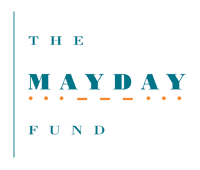The Treat the Pain & Life before Death Projects focus on the global epidemic of untreated pain and the need for palliative care. Read more / Watch All the Videos
Produced by Mike Hill & Sue Collins, Moonshine Movies
Treat the Pain Life Before Death
About this Video
'Back to School' advocates for pain management to be a priority for medical schools around the world. read more...close
Global leaders describe the challenges and fears about the inclusion of pain education in medical curricula. Professor Joan Marston (South Africa), Dr Kathleen Foley (USA), Dr Cynthia Goh (Singapore), Dr MR Rajagopal (India), Dr Natalya Dinat (South Africa), Liliana de Lima (Colombia), Dr Anne Merriman (Ireland) and Dr Sophia Bunge (Argentina) provide notable quotes:
Professor Joan Marston (South Africa) reflects; “If you don’t have doctors and nurses who are adequately trained in pain management and how to use the drugs… it doesn’t matter how much morphine you’ve got in the country – it’s not going to get to the patients.”
“When the Institute of Medicine reviewed why we had so much difficulty in providing palliative care and providing access to pain relief,” states Dr Kathleen Foley (USA), “The report began ‘we’ve identified the problem and it’s us,’ i.e., the health care professionals.”
“Pain has never been a priority in the training of medical schools and nursing schools, “continues Dr Cynthia Goh (Singapore).
Dr MR Rajagopal (India) explains how medical students in his hometown of Trivandrum graduate without having seen a single tablet of oral morphine. We see Dr Rajagopal challenging students from Trivandrum Medical College; “Do you think there is something lacking from our medical education?”
Dr Natalya Dinat (South Africa) reflects on testimony from a peer proudly pronouncing that the ward they oversee in a large hospital in Johannesburg is “morphine sparing.”
Liliana de Lima (Colombia) reports, “When you look at what curriculums are out there for physicians and nurses, they are getting very little training if anything, and most of the countries do not even address the issue of pain evaluation.”
Dr Rajagopal reiterates a key principle during a nurse training session in Trivandrum, “This is the most important definition that we have: ‘Pain is what a patient says hurts’.”
Dr Anne Merriman (Ireland) continues; “In every country I’ve been into, the doctors are the biggest opposition, particularly the senior ones who have been trained that morphine is addictive and they think we’re making addicts out of everybody.
“I personally was afraid of using morphine when I started my internal medicine residency,” admits Dr Sophia Bunge (Argentina), “As if it was a really scary drug to use but it turns out it was really easy.”
“If all the physicians at least have some basic training on how to do appropriate pain assessment,” concludes Liliana de Lima, “I think that would make a difference.
Call to Action
- Tell one leading educator you know to watch this video
- Then ask that educator what you can do to advance pain management education in your community
- Share your experiences in the comments section below…
Supporting Resources
- Educational Resources for Healthcare Professionals
- EPEC: Education in Palliative and End-of-Life Care
- Education in Palliative and End-of-Life Care for Oncology (EPEC™-O) Curriculum (open access in English and soon in Spanish and Ukrainian)
- EPERC: End of Life / Palliative Education Resource Center
- Fast Facts
- End-of-Life Nursing Education Consortium (ELNEC) Curricula (open access in Spanish and Russian)







